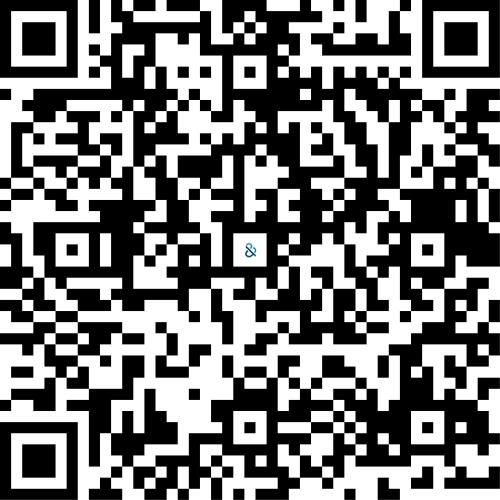Blogs
Services
Role Of Human Resources in the Centers Work From Home
Jan. 11, 2023

Due
to the pandemic, Human Resource organizations across the globe have driven the
implementation of ‘work from home’ almost overnight. Most HR professionals in India would agree that transitioning
to remote working was the easier part of their responsibilities. Once remote
working capabilities were up and running, HR professionals had to develop
strategies to handle other crucial activities such as hiring and onboarding, employee
engagement, and shaping organizational culture.
Recruitment During COVID
Although
salaries are booming in specific industries like tech and finance,
organizations have realized that lucrative remunerations won’t be there to
attract exceptional talent.
Employee
expectations have drastically evolved during the new normal. They are looking
for organizations that offer jobs to professionals who prefer working 100%
remotely, others want a hybrid model, and some wish to regress to the old
normal.
Apart
from this, they are also looking to be associated with organizations offering
empathetic leadership to enable a better work-life balance. Therefore
recruitment teams have to work closely with leadership to define an effective
recruitment strategy. This would include positioning themselves as attractive
workplaces, providing flexibility concerning worksites (remote, hybrid, and
onsite), and compensating employees with perks that support overall well-being.
Hence,
recruiters update their job postings with action plans for the new normal.
Interviews are primarily conducted using virtual hiring technologies, and the
number of interview rounds is optimized. Human resource management in 2024 is
vital to diversity, where recruiters set biases and focus on building a diverse
talent pipeline.
Employee Engagement, Well-being, and Effectiveness
One
of the most vital imperative initiatives for HR professionals during the new
normal is to deploy employee engagement practices for their remote workforce.
As
per a survey conducted by McKinsey, employees working remotely felt highly
engaged, experienced a more profound positive impact on their daily tasks, and
enjoyed more vital well-being compared to those working non-remotely.
However,
according to a survey conducted by Monster, 69% of employees admitted to
experiencing burnout while working from Home. Hence, HR leaders in 2021
have been aspiring to offer holistic working experiences for their employees
that prioritize their well-being.
In
the past, employee well-being was impacted primarily by safety and security.
Over time, other themes such as trusting relationships, social cohesion, and
individual purpose have also begun to influence employee wellbeing.
Therefore,
firms have set up daily team meetings and 1-1 check-ins. These activities have
empowered check-ins to set micro-goals and receive continuous feedback. By
developing a ‘coaching approach’, leaders can motivate their teams, offer
purpose, measure progress and improve productivity.
At
Prezi, employees are encouraged to have meetings that are not ‘live’. They also
try to keep the average length of all their live meetings to 18 minutes.
Leading firms like Google, Dropbox, Tinder, and Apple have organized virtual innovative
events such as interactive magic shows and virtual ramen cooking classes.
Other
companies like The Creative Suite are promoting the concept of sending ‘care
packages’ to the doorsteps of employees. These packages are as per a specific
theme. Organizations such as Linkedin and Jooble are also encouraging their
employees to pursue side projects that align with their personal goals.
Leveraging Platforms to Manage a Distributed Workforce
A
distributed workforce comprises employees working across multiple locations,
including satellite offices and homes. Although this trend existed before the
pandemic, the new normal has led to multiple organizations working with a
distributed workforce proving vital in managing a distributed workforce. These
include teleconferencing, chat rooms, cloud-based file-sharing tools, and
screen-sharing software. Some devices combine all these offerings. For
instance, SamparQ enables a distributed
workforce to conduct training, get instant feedback, connect with live field
teams, and share status messages.
Resetting Work Culture
Legendary
management consultant Peter Drucker said, “Culture eats strategy for
breakfast.”
Work
culture in an organization defines the implicit and explicit organization
within it. It determines the way employees communicate, behave and act. It
clarifies what is encouraged and what is frowned upon. A winning work culture
develops when employees feel valued, engaged, and heard. Work culture plays a
vital role in aligning organizational and employee goals. Hence, it is a
fundamental growth driver for an organization.
Across
organizations, human resource teams have realized that working from Home has
caused “complex” among experienced employees. Recently hired individuals have
felt completely disconnected. There have been reports of alienation and
strained professional relationships.
When
offices open up, business leaders will face many challenges related to working
culture. For instance, certain employees may desire only to work remotely,
whereas others may prefer a hybrid model. Certain habits could have been formed
while working from Home that might have to be altered. Also, norms and
practices may have to be changed for teams to start working together again.
This
requires significant transparency and clear communication. Leaders must have
multiple conversations across different workforce levels to get insights on
resetting the work culture.
As restrictions are being lifted and employees begin returning to workplaces, specific Human Resource initiatives that were conceptualized during the pandemic are likely making high-performances. Needless to say, organizations that revert to the old ways would feel challenging to get the right people on board.
Due to the pandemic, Human Resource organizations across the globe have driven the implementation of ‘work from home’ almost overnight. Most HR professionals in India..
